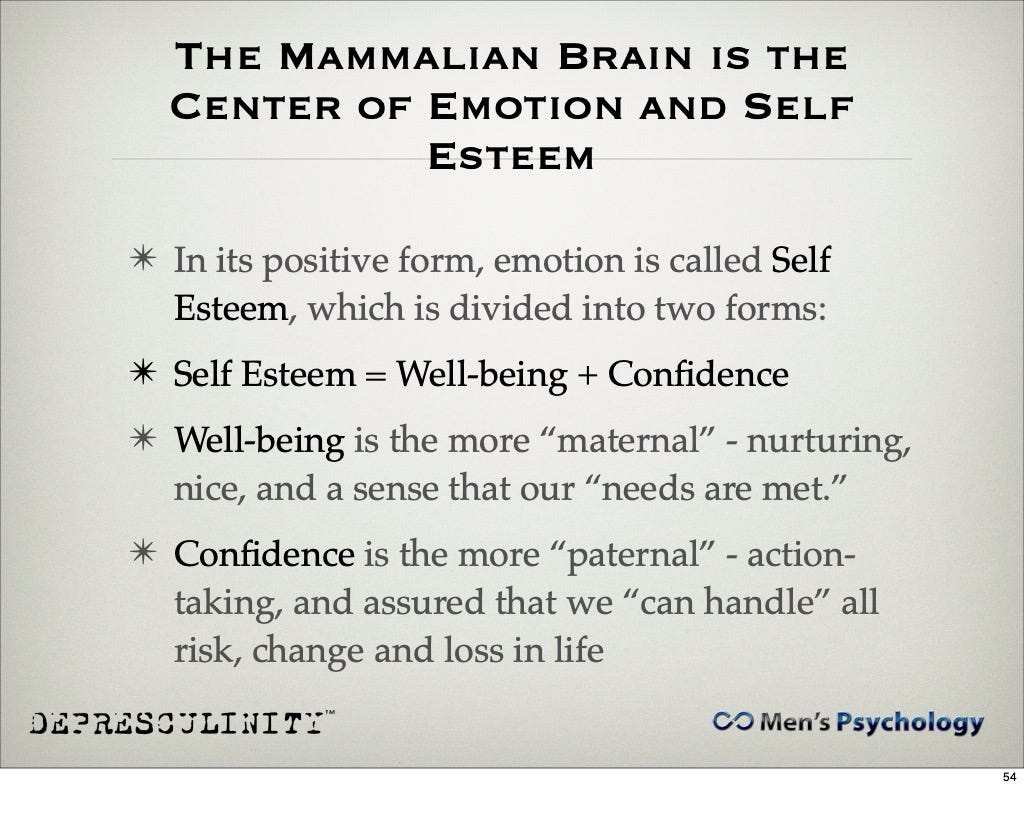For more from Men’s Psychology, and full access to this entire course, upgrade here:
SHOW NOTES:
We describe a person who is living a passive and unhappy life. He follows instructions at work, allows his girlfriend and friend to cheat on him, and tolerates abuse from his girlfriend. The author suggests that this passivity is like being trapped in a prison, preventing the person from taking action or seeking freedom. The passage also mentions the KWML personality styles (kings, queens, warriors, magicians, and lovers), which the author now refers to as MI Social (Masculine Intelligence for Your Social Life). The metaphorical comparison between the reptilian brain (representing passiveness) and the mammalian brain (emotions, friendship, teamwork, and self-esteem) is introduced, highlighting the importance of addressing the emotional aspects of depression. The passage states that the discussion will begin with the understanding of depression as commonly known.
We here explain that the similarity between clinical depression in men and women lies in the emotional experience rather than the reptilian brain. It states that the mammalian brain is responsible for feelings of self-esteem, including well-being and confidence. It is also where emotions like friendship and love are experienced, as well as a sense of value.
We discuss the concept of demonstrating value in dating, suggesting that it is essentially about showing masculinity and the ability to express it. However, it introduces a different perspective on value, comparing it to how we evaluate the importance of a person or thing in our lives. It suggests that the value of something or someone is determined by the amount of happiness and self-esteem it brings us.
This is the concept of value as it relates to people and emotions. It explains that the value we assign to someone or something can vary based on our emotions. For example, on a day when we feel happy and enjoy spending time with certain friends, we may value them more.
However, on a bad day or during a disagreement, we may value them less because we are unhappy with the thought of them. The passage introduces the idea of "putting something in a box," meaning our perception of a person or idea is tied to a specific emotional response.
The level of positive or negative emotion we feel toward that person or idea determines how much we value them. The passage likens this understanding of value to the concept of "liking" something on social media, where the act of pressing the "like" button represents the amount of happiness a post brings us. It suggests that to determine how much someone values you, observe how happy they appear because of your presence or actions.
An example is given where a girlfriend becomes upset even though her partner paid for an expensive lunch because he didn't listen to her during the meal. This situation illustrates that the emotional response and happiness someone experiences in a relationship indicate how much they value the other person.
It discusses the concept of value in a relationship and the dynamics between a man and his girlfriend.
It highlights that material things do not determine the amount a person values or monetary value but by their emotional satisfaction and happiness in the relationship. It presents an example where the girlfriend does not appreciate her partner because she is unhappy with their living situation and feels unappreciated. It contrasts "boy thinking" with a more mature and masculine mindset.
In "boy thinking," a person waits for permission from others or external validation to make decisions or take actions. However, in a mature masculine mindset, one feels empowered to pursue their desires and engage in activities just because they want to, without needing to justify them.
This is to emphasize the importance of personal agency, self-worth, and breaking free from the mindset of seeking permission or validation from others. It states that being trapped in this mindset can lead to feeling stuck or spinning one's wheels. The passage invites a response or follow-up from the listener to reflect on and discuss the ideas presented.

















Share this post